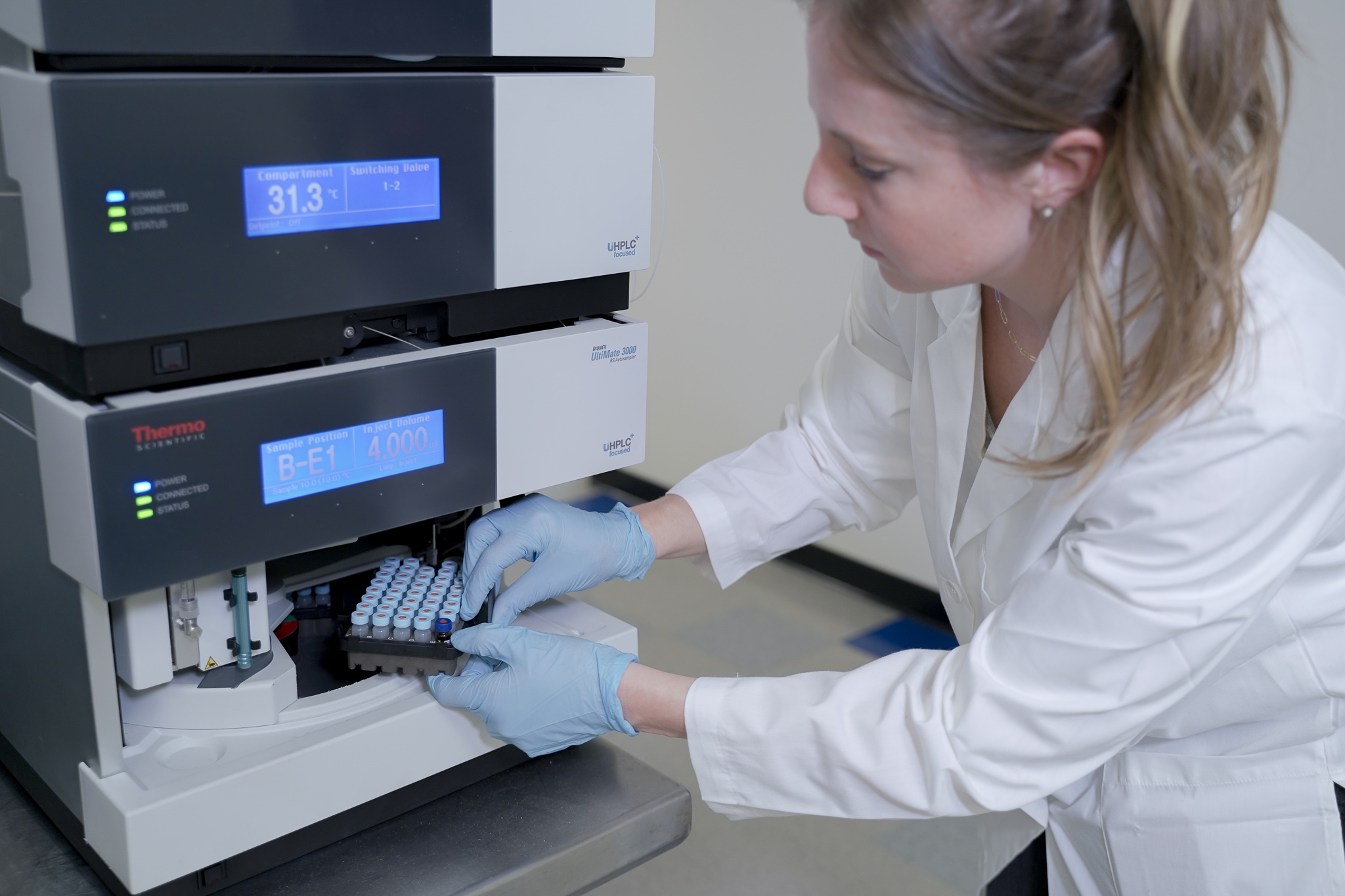Peptide Mapping

Protein Identification by Peptide Mapping
Peptide mapping, an identity test for proteins, is an essential analytical method for elucidating the primary amino acid structure of proteins. For recombinant protein pharmaceuticals, such as monoclonal antibodies (mAbs) and antibody-drug conjugates (ADCs), peptide mapping is used for proof of identity, primary structural characterization, and quality assurance (QA). Regulatory agencies issued ICH Q6B guidance which specifies the use of peptide mapping as a critical quality test procedure for drug characterization used to confirm desired product structure for lot release purposes. Peptide mapping involves enzymatic treatment of a protein, resulting in the formation of peptide fragments, followed by separation and identification of the resultant fragments by LC-MS/MS in a reproducible manner. It can identify single amino acid changes resulting from events such as errors in the reading of complementary DNA (cDNA) sequences or point mutations.
Poochon developed a standardized platform for peptide mapping of purified proteins using protease digestion and liquid chromatography tandem-mass spectrometry (LC-MS/MS).
+ P501: Peptide Mapping
Protein Sequence Confirmation of a Test Protein Product Compared to a Reference Standard
Price: $1,600 per sample
Turnaround Time: 5 to 10 business days
Service Description:
• Protein sequence confirmation and determination of post-translational modifications (PTMs) and sequence variants by comparison to a reference standard or predicted sequence (e.g., used when comparing biosimilars with versions of original “innovator” products)
• Can be used for proof of identity, primary structural characterization, quality assurance (QA), and characterization of a new reference standard
• Workflow: Sample preparation, protease(s) selection, enzymatic digestion, LC-MS/MS analysis, data analysis, and results report
Deliverables
• Protein analysis report
• Peptide mapping results (alignment of digested peptides to predicted sequence)
• List of peptides detected
• Chromatograms of enzymatic digests of sample and comparison with reference standard if any
• Raw data files, upon request
Suitable Sample Type
• Purified protein sample, in solution or dried (≥ 20 µg per sample recommended for optimal results; purity > 99%)
• Protein sequence confirmation and determination of post-translational modifications (PTMs) and sequence variants by comparison to a reference standard or predicted sequence (e.g., used when comparing biosimilars with versions of original “innovator” products)
• Can be used for proof of identity, primary structural characterization, quality assurance (QA), and characterization of a new reference standard
• Workflow: Sample preparation, protease(s) selection, enzymatic digestion, LC-MS/MS analysis, data analysis, and results report
• Protein analysis report
• Peptide mapping results (alignment of digested peptides to predicted sequence)
• List of peptides detected
• Chromatograms of enzymatic digests of sample and comparison with reference standard if any
• Raw data files, upon request
• Purified protein sample, in solution or dried (≥ 20 µg per sample recommended for optimal results; purity > 99%)









